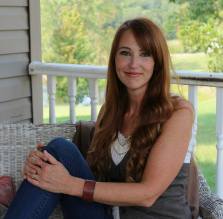 You are a door to door salesperson who sells vacuums. Finally, after months of having doors slammed in your face, a potential buyer stands in the doorway long enough to ask you a question. “What kind of vacuum is it?” You hem-haw and squirm because you really don’t know so you just spout off the most popular vacuum type you can think of. “It’s a zero-turn-radius, bagless, cyclone chamber with scented filters.” When really it’s one of those old models that looks like a set of bagpipes. What does the potential client who you could have made enough off of to not have to sell another vacuum for a whole month do? He slams the door in your face, of course.
You are a door to door salesperson who sells vacuums. Finally, after months of having doors slammed in your face, a potential buyer stands in the doorway long enough to ask you a question. “What kind of vacuum is it?” You hem-haw and squirm because you really don’t know so you just spout off the most popular vacuum type you can think of. “It’s a zero-turn-radius, bagless, cyclone chamber with scented filters.” When really it’s one of those old models that looks like a set of bagpipes. What does the potential client who you could have made enough off of to not have to sell another vacuum for a whole month do? He slams the door in your face, of course.
Our manuscripts can be just as difficult to sell (not that any of or work is like a bagpipe vacuum cleaner, I should hope) and finding a genre our manuscripts fit into to market them can be even more difficult. However, without the proper packaging, you can have an amazing product but never move it off the shelf. Face it, most of us buy name brand just because it looks more trustworthy. It would be nice if we could just go without picking a genre and just let our work speak for itself but in the world of publishing there is no such thing as No Genre Bob.
The last writer’s conference I attended had a “Read the Slush Pile” event, as many do. Three agents sat on a panel while someone read the first five pages of our manuscripts to them. When they didn’t want to hear anymore they raised their hands and the reader ceased. Then the agents told why they would have stopped reading that particular piece if it were in their slush pile. It was very informative and helped me to better develop my first chapter. But one of the main reasons they stopped reading was when an author incorrectly billed a piece as a certain genre. At first I thought they were just being picky but they explained their reasons for this.
The first reason was that a writer should know their genre. If they don’t, the agent can already see that working with this author may consume a little more time than they have available. The second reason why agents say writers bill their work as a genre that it is not, is because they are scared their work falls under a dead category and think if they bill it as something else it will seem more appealing. The fact is:
You have a better chance at getting an agent’s attention with your work under its true genre (even if the genre isn’t so hot right now) than you do if they start to read it and find out it’s not what you claimed it was-no matter how good your work is.
That doesn’t mean agents are uppity or snide. It just means that, like you and I, they like to get the product they are told they are getting. So, knowing your genre is the key. I remember flipping out when I heard the agents respond that way because I had pitches scheduled with them the following day and I wasn’t prepared to commit to a genre at that point. What would I do if they put me on the spot? I stayed up for hours in my hotel room researching different genres and comparing my story to others that have already been marketed under certain labels. It was hard because one of the agents I was pitching to wasn’t particularly fond of the category my manuscript seemed to be consistently falling into with my research. I had to be straight forward with her and she asked me to send her a partial!
There are some great resources out there for pinpointing your genre.
First, start by reading lists of genres and weed out the ones that don’t apply. Sometimes books fall into multiple categories like YA/Science Fiction/Romance, so don’t try to narrow it down to just one yet. Make sure the list you are looking at is up-to-date. Some genres are called by different names than they used to be and there are new ones, like NA (New Adult), that are added to the list. Here are a few good lists to start with: List Of Fiction Genres and Bubble Cow’s Genre List. You may have to piece a few lists together to get a complete list. As you can see, NA is not even described on these lists yet because it is so new.
Then once you’ve narrowed it down to a few genres, start looking at books that are similar to yours. This is a good practice anyway because most agents are going to want you to compare your book to something that is already on the market. While most of us would like to think our book is one of a kind that’s not always a good thing. People like to read things similar to what they’ve already enjoyed. We naturally choose by comparison. So look at other books that compare to yours and see what genre they fit into.
It’s not an easy process. It’s like choosing a label for your child. You, young one, will forever be known as a…carpenter or psychologist or mother or construction worker. It’s tough stuff but we can do it! Anybody else out there struggle with labeling your baby?





Great post – I’m reblogging it and saving it for future reference. Genre is something I had a real struggle with when I began writing and you have made the process of figuring it out much easier. Thanks!
Thanks for the repost. Glad I can be helpful!
Reblogged this on L.LEANDER BOOKS and commented:
Having problems with your genre? This post by Margie Brimer helps you figure it out.
Thanks Margie I will also be saving this for future reference. Without comparison there is nothing and the rule seemingly applies for books as everything else. The lists are really helpful. I look forward to reading your future blog posts.
There are definitely rules that apply to publishing, written and unwritten alike. Glad the list helped you out! Thanks for following!
What I really need to do is find books that are similar to what I’ve written…I’ve got the genre down (I think!), just not the “siblings”… 😉 Any specific tips on that?
Reading and looking at lots of synopses as well as reviews is the best way to find comparisons.
You are so right, Margie. Sometimes people aren’t sure. (Is it sci-fi? Fantasy?) They’re also unsure of the audience. (Is it YA paranormal? NA paranormal? YA fantasy? YA magical realism? MG magical realism?) Because there are so many subgenres, I can understand the confusion. But agents and publishers need to know this information so that future booksellers know where to place the book in a bookstore.
Exactly! It’s a way to know where your manuscript fits in the market!
Good arguments here, Margie. I’ve resisted having to choose one specific genre to write under, because I don’t particularly care to adhere to the constraints of a specific genre. I’d rather write to a cross-genre audience, but I know that can be hard to pull off. Your post here is the best argument on why one should really find a genre that best works for your writing.
It would be nice to be a free flying “No Genre Bob” but unfortunately people don’t buy items without labels.
[…] Margie Brimer’s excellent advice piece, “Do You Know Your Genre?” made me realize that using the genre “label” is absolutely vital in branding […]
Thanks for the Ping!
Thanks for inspiring the blog that inspired the ping!
This is so helpful. I’ll be scouring the lists to figure out where my WIP fits. I thought is was one genre, but now I’m not so sure. Though I like the option of not narrowing it down to one, but listing the 2 or 3 it may fall into. Thanks for the great tips!
Glad to be of help! Good luck checking over the lists and with your work in progress!
Great post! This is really helpful. What kind of comments did the agents make when they wanted you to stop reading your work?
They mentioned that the consistency between the voice was confusing in the first few sentences. I didn’t have my genre labeled so they didn’t know if it was middle grade or YA. I totally agreed with them and made some changes right away. The other thing they said was they were left with too many unanswered questions after the first page. Although they would have been answered in the following pages I needed to show the reader answers in the first few sentences. Hard to do but not impossible. I love a good challenge.
I guess I’d better start researching !!!!
Just another thing on the to-do list of a writer! It never ends.
I’m in limbo on this! Haha…
Felicia
That’s okay. It will come to you…maybe in your sleep! 🙂
Reblogged this on Faerieshimmer's Blog "Everyone is Special and Shimmers".
Wow amazing advice. I want to write short fiction but I’m having trouble deciding what genre to do. I saw the lists and I guess I’ll just need to research! Whew!
It is tough! Labeling your baby is so hard yet critical in today’s market!
How does a indecisive (like me haha) decide on one genre? Eek!